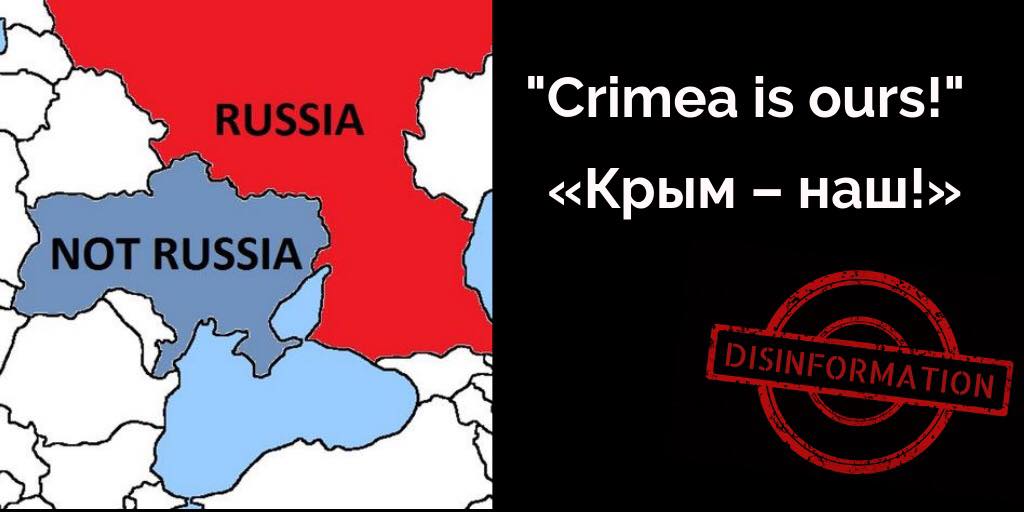This was the slogan Russian authorities used for celebrating the annexation of the Ukrainian peninsula – a process which started five years ago, in February 2014.
Since then, the Crimean question has not only been a struggle over territory; the annexation also laid the ground for a struggle over truth, which remains until this day.
Polite and green men
Heavily armed and stripped of their insignia, Russian soldiers quietly took control over Crimea’s infrastructure in the turbulent days that followed Ukraine’s Maidan Revolution.
In Russia, these soldiers became known as “polite people;” outside of Russia, they were “little green men.” Both nicknames played on their deniability, i.e. the fog of falsehood that surrounded the Russian military operation.
Read also: Little green men: the annexation of Crimea as an emblem of pro-Kremlin disinformation
Challenging disinformation with reporting
The eyes and ears of the outside world were the reporters who worked on the ground in Crimea. As the events accelerated, they would play the leading role in challenging the Kremlin’s disinformation.
Among them was journalist Simon Ostrovsky, who day after day described developments for Vice News with a series of video reports; his award-winning work has become a modern classic.
Click to watch Simon Ostrovsky’s original reporting for Vice News with the ‘little green men’ invading Crimea
With Ostrovsky’s help, international audiences witnessed upfront the decisive encounters between Ukrainian and Russian servicemen. He showed who the real people were on both sides of the conflict – and made the Russian masks fall.
Without professionals like Simon Ostrovsky in the right place at the right time, the Kremlin’s disinformation campaign could potentially have been more successful than it turned out to be.
Strategically challenging disinformation
The events in Crimea did not only attract the attention of the important here-and-now hotspot reporters.
The Kyiv-based online project StopFake quickly became an international trendsetter in the practice of raising awareness through compiling examples of pro-Kremlin disinformation and storifying these observations with feature articles.

In Russia, the independent online outlet The Insider has systematically been challenging disinformation since early 2016. Numerous stories have described cases when events in Crimea and elsewhere have been manipulated to fit the Kremlin’s narrative.
There have also been international efforts to directly push back on pro-Kremlin disinformation; among the examples are the EU’s EUvsDisinfo project; the Atlantic Council’s DFRLab; RFE-RL’s Polygraph and the online outlet Coda – whose investigations team Simon Ostrovsky now leads.
Coda also has a Russian edition led by the Russian journalist Alexey Kovalyov, whose blog “Noodle Remover” was another important center for exposing the Kremlin’s disinformation in the aftermath of Crimea’s annexation.
Crimea is not Russia
Five years into the annexation, Crimea is still not “nash,” still not “ours,” still not a part of Russia. Insisting on that is to disinform, and repeating the slogan does not make it happen.
It is thanks to Simon Ostrovsky’s and his colleagues’ reporting from the heart of events that we could distinguish false from true in real time.
Further reading:
- Russian Journalists Fight Back Against Disinformation
- ‘Krymnash’ Meme Part of Russian Society’s Return to Late Soviet Times
- Ukraine Under Information Fire
- Someone Said That the Referendum in Crimea was Legitimate
- Russia’s Long-Term Disinformation Plan For The Azov Sea
- Four years after annexation: Ukraine still connected with occupied Crimea, albeit weakly
- First int’l human rights mission since occupation reports on how Russia crushes opposition in Crimea
- Gaps in geography: Russia thinks Black Sea not European, Duma vice-speaker sees Azov Sea inland Russia’s

